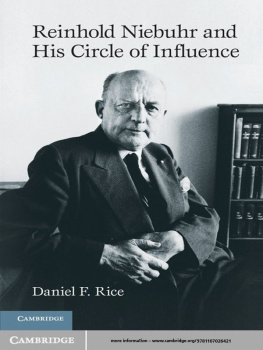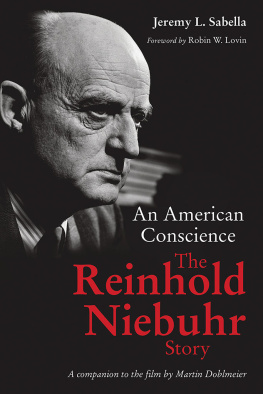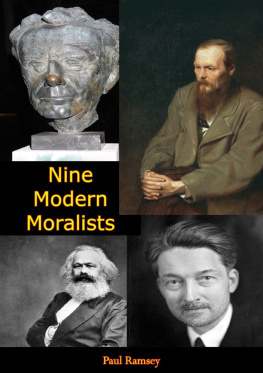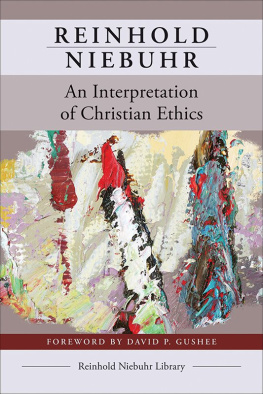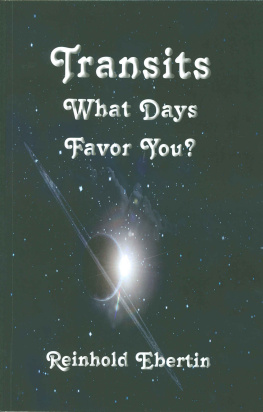Reinhold Niebuhr and His Circle of Influence
Reinhold Niebuhr, the prominent American theologian, was one of the few religious figures who had a significant impact on the broader society outside the theological community in the United States during the twentieth century. Niebuhrs influence was most pronounced among those associated with historical studies and politics. This book presents Niebuhr in dialogue with seven individuals who each had a major influence on American life: the theologian Paul Tillich, philosopher/educator John Dewey, socialist activist Norman Thomas, historian Arthur Schlesinger Jr., international political theorist Hans Morganthau, diplomat George Kennan, and Supreme Court Justice Felix Frankfurter. Through a detailed examination of Niebuhrs interactions with these figures, Daniel F. Rices study offers a survey of mid-twentieth-century theology, political thought, and culture.
Daniel F. Rice is Professor Emeritus of Philosophy and Religious Studies at the University of Wisconsin, Eau Claire. He is the author of Reinhold Niebuhr and John Dewey: An American Odyssey (1993) and editor of Reinhold Niebuhr Revisited: Engagements with an American Original (2009).
Reinhold Niebuhr and His Circle of Influence
Daniel F. Rice
University of Wisconsin, Eau Claire
CAMBRIDGE UNIVERSITY PRESS
Cambridge, New York, Melbourne, Madrid, Cape Town, Singapore, So Paulo, Delhi, Mexico City
Cambridge University Press
32 Avenue of the Americas, New York, NY 10013-2473, USA
www.cambridge.org
Information on this title: www.cambridge.org/9781107653092
Daniel F. Rice 2013
This publication is in copyright. Subject to statutory exception and to the provisions of relevant collective licensing agreements, no reproduction of any part may take place without the written permission of Cambridge University Press.
First published 2013
Printed in the United States of America
A catalog record for this publication is available from the British Library.
Library of Congress Cataloging in Publication Data
Rice, Daniel F., 1935
Reinhold Niebuhr and his circle of influence / Daniel F. Rice.
p. cm.
ISBN 978-1-107-65309-2 (pbk.)
1. Niebuhr, Reinhold, 18921971 Influence. I. Title.
BX4827.N5R525 2012
230.092dc23
2012012499
ISBN 978-1-107-02642-1 Hardback
ISBN 978-1-107-65309-2 Paperback
Cambridge University Press has no responsibility for the persistence or accuracy of URLs for external or third-party Internet Web sites referred to in this publication and does not guarantee that any content on such Web sites is, or will remain, accurate or appropriate.
To Judy
for everything
and
to Dick Behling,
valued friend and colleague
Contents
Acknowledgments
I wish to thank my wife Judith and my former colleague Dick Behling for their dedication and labor in readying this manuscript prior to submitting it to Cambridge University Press for publication. My wifes experience as an editor and teacher of English and Professor Behlings skill in all things linguistic served me well in the task of writing this book.
The willingness of Cambridge University Press to consider and finally decide to publish the book is, of course, paramount to its seeing the light of day. I am most grateful for the diligence and patience of Eric Crahan who as Editor of History and Politics steered this project to completion. Thanks also go to Abby Zorbaugh, Cherline Daniel, and Adam Schwartz.
Because the relationship between Reinhold Niebuhr and each of the seven individuals dealt with in this book involved a substantial degree of correspondence material, I extend my gratitude to the numerous named and unnamed individuals whose assistance proved invaluable. Thomas Lannon of the Manuscripts and Archives Division at the New York Public Library located and sent me correspondence between Niebuhr and Arthur Schlesinger Jr. from the newly opened Schlesinger Papers. Archivists Stephen Plotkin and Meridith Roy at the John F. Kennedy Library in Boston also made their NiebuhrSchlesinger correspondence available to me. Maurice Klapwald was able to provide me with correspondence between Niebuhr and Norman Thomas from the New York Public Librarys archive containing the Norman Thomas Papers. Resource people at the Seeley G. Mudd Manuscript Library at Princeton sent me the correspondence between Niebuhr and George Kennan from the Kennan Papers. The help provided to me by the staff at the Manuscript Division of the Library of Congress was crucial in giving me access to the Reinhold Niebuhr Collection and the Felix Frankfurter Collection. Finally, several individuals at the Morris Library of Southern Illinois University at Carbondale offered valuable assistance in accessing their collection of the John Dewey Papers.
Several institutions were kind enough to provide me with photographs of the seven individuals comprising this volumes representation of Niebuhrs circle of influence. Wayne Geist at the Graduate Center of the City University of New York supplied me with the photograph of Arthur Schlesinger Jr. The University of Chicago is to be credited for the photographs of Paul Tillich and Hans Morgenthau. Photographs of Norman Thomas, George Kennan, and Felix Frankfurter were provided by the Library of Congress. The photograph of John Dewey came from the Morris Library of Southern Illinois University at Carbondale.
Introduction
The theologian Reinhold Niebuhr was among the few members of what Paul Tillich called the theological circle to make a significant impact on the secular world. Within this world, Niebuhrs influence was most pronounced among those associated with historical studies and politics. This book presents Niebuhrs dialogues and interactions with seven influential individuals from fields as diverse as theology, philosophy, political theory, diplomacy, and jurisprudence men whose careers took them to the pinnacles of their professions.
Paul Tillich was the dominant philosophical theologian in mid-twentieth-century America. John Dewey, a staunch defender of democracy and icon of social liberalism, was Americas leading educator and successor to William James as the preeminent exponent of American pragmatism. Norman Thomas established a reputation as the most influential voice of socialism in the United States. Arthur Schlesinger Jr. was a brilliant and prolific historian, as well as a political activist and presidential adviser. Hans Morgenthau, after his arrival in America, quickly became the leading authority in international political theory and a forceful advocate of political realism. George Kennan, an expert on Soviet affairs and author of the United States postWorld War II containment theory, was one of Americas most able diplomats. Felix Frankfurter was a giant on the Supreme Court and was considered by many to possess a brilliance matched by very few in the history of that august body.
Three factors were involved in choosing these individuals for detailed examination: the degree of interaction each had with Niebuhr; the availability of source material, including abundant correspondence, connecting each to Niebuhr; and the impact each made on American life and thought.
The sequence of the chapters is based on both chronological and developmental factors. The chronological factor relates to the time during which Niebuhrs interaction with each person came into focus. The developmental factor relates to the changes in Niebuhrs thought over the course of his career. The relationship between Niebuhr and Tillich began in 1933, arising out of the situation in Nazi Germany when Niebuhr played an instrumental role in helping Tillich establish himself at Union Theological Seminary in New York City. Paul Tillich, Norman Thomas, and John Dewey were ardent socialists at the time Niebuhr first gained public notice with the publication of Moral Man and Immoral Society in 1932. Niebuhr and Dewey worked together in the arena of progressive politics from the time Niebuhr arrived at Union, although their relationship became increasingly adversarial after Niebuhr held him up to criticism in Moral Man and Immoral Society . Niebuhr and Norman Thomas shared a socialist history that spanned the period between Thomass first run for the presidency in 1928 and Niebuhrs resignation from the Socialist Party in 1940. The beginning of Niebuhrs relationship with Schlesinger occurred at a transitional period when Niebuhr was moving away from his socialist-radical period. Schlesinger, a generation younger, became aware of Niebuhr at the beginning of the 1940s, and their relationship reached its zenith during their support of Adlai Stevenson during his presidential campaigns of 1952 and 1956. Niebuhr met Hans Morgenthau at the University of Chicago in 1944, and together they helped shape the emerging political realism that spanned the 1940s and 1950s. Although George Kennan and Niebuhr had little face-to-face contact, Kennan, referring to the political realists, once called Niebuhr the father of us all and conscripted Niebuhr to serve as one of the outsiders on the State Departments policy planning committee in 1949. The book concludes with Felix Frankfurter, whose relationship with Niebuhr spanned the quarter-century prior to Frankfurters death in 1965 and was the most intimate of all Niebuhrs associations among these seven individuals.


